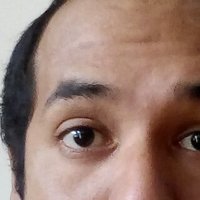Paulo Fernando Lévano
Università di Bologna, Filosofia e Comunicazione, Graduate Student
La conceptualización y el marco legal del odio en las democracias contemporáneas están en el centro de la atención por su proximidad al problema de la libertad de expresión. La reciente migración del discurso público de ambientes... more
La conceptualización y el marco legal del odio en las democracias contemporáneas están en el centro de la atención por su proximidad al problema de la libertad de expresión. La reciente migración del discurso público de ambientes desconectados a escenarios en línea nos obliga a adoptar enfoques más penetrantes en esta cuestión, para entender cómo las dinámicas de género se reproducen entre los usuarios de internet. El artículo ofrece una aproximación legal, desde una perspectiva de género, al odio tal y como aparece en la legislación internacional y europea, con el fin de comparar las legislaciones de Italia y España. El objetivo es mediar el conflicto entre libertad de expresión y los compromisos que los Estados asumen para dotar a específicos sujetos de protección contra formas de violencia de género que ocurren en internet.
Research Interests:
Clausewitz’s concept of material warfare is a reaction to the trend of reducing the art of war to the application of self-evident rules of engagement. By putting tactical outcomes in the perspective of strategic decision-making, the... more
Clausewitz’s concept of material warfare is a reaction to the trend of reducing the art of war to the application of self-evident rules of engagement. By putting tactical outcomes in the perspective of strategic decision-making, the battlefield becomes the place where the trend to the extremes plays out. Based on his concept of material warfare, immateriality will be presented not as an abstraction of material circumstances but rather as the tendency to escalation that is inherent to every combat. Some conclusive remarks will be dedicated to the relation between military history and interpretations of military genius, in order to support the claim that materiality and immateriality are semantic concepts that express a state of equilibrium between evidence and decision
Research Interests:
The aim of the present paper is to introduce a philosophical critique of the concept of sustainability through the ecosophy outlined by F. Guattari. According to the ecosophical perspective, the idea of sustainability hides the... more
The aim of the present paper is to introduce a philosophical critique of the concept of sustainability through the ecosophy outlined by F. Guattari. According to the ecosophical perspective, the idea of sustainability hides the transcoding processes of technological innovation. The first part of the paper develops a genealogy of transcoding processes by regarding them as an ecosophical object. The second one analyses the basic dualism of sustainability in detail: ecocentrism vs technocentrism.
Research Interests:
The paper addresses the issue of conceiving randomness in the process of literary creation by means of outlining a comparative reading of three prose works by J.L. Borges, A. Pizarnik and J. Cortázar. Randomness will be dealt with against... more
The paper addresses the issue of conceiving randomness in the process of literary creation by means of outlining a comparative reading of three prose works by J.L. Borges, A. Pizarnik and J. Cortázar. Randomness will be dealt with against the background of intertextuality, a feature that stands out rather provokantly in these authors' writings. After some preliminary remarks on randomness coming from an epistemological angle, the focus will be set on the way in which these authors randomize the linear path between writer and reader through intertextuality. As a result, a path may be suggested towards the reader reclaiming her role in the construction of literary traditions.
The authors trace the question “what can a body do?” back to one of the main conceptual lines of discussion featured in the history of modern thought, namely, the nature/culture distinction, closely linked to the object/subject and... more
The authors trace the question “what can a body do?” back to one of the main conceptual lines of discussion featured in the history of modern thought, namely, the nature/culture distinction, closely linked to the object/subject and natural/artificial distinctions. These distinctions being the core of important developments in 20th-century French philosophical thought, a specific reference will be carried out to the works of philosophers Maurice Merleau-Ponty and Georges Canguilhem, dealing respectively with praktognosia and biological normativity. Having them in mind, the authors aim at relieving the body from the conceptual imagery provoked by yet another product of the nature/culture distinction: the mind/body dualism, which very often has submitted the latter to the former. Departing from the description of the ecosophical context assigned to the content of this article, the conclusive remarks hope for an ecologically renewed conceptualization of the body and its range of action.
Research Interests:
By reviewing key notions in the philosophy of Enzo Melandri regarding the topic of isomorphism, the problem of time-perception will be faced from a phenomenological standpoint; this, in order to establish in which terms it might be still... more
By reviewing key notions in the philosophy of Enzo Melandri regarding the topic of isomorphism, the problem of time-perception will be faced from a phenomenological standpoint; this, in order to establish in which terms it might be still useful to distinguish between one mode of temporality that is subjective (time perception) and one that is objective (time of nature). Time and its perception, as dealt with in the classical postures of Augustine and Kant, will turn useful to reveal the both ontological and gnoseological assumption that an isomorphism holds between the subject's language and objective states of things. De-classing the isomorphism to mere "gnoseological ideology" shall ultimately lead to the acknowledgment that a theory of isomorphism is unwarranted for, and that temporality holds for every consideration of ours, whether it derives from an ontological or a gnoseological order of priorities. What holds as a correct model of reality changes as time goes b...
